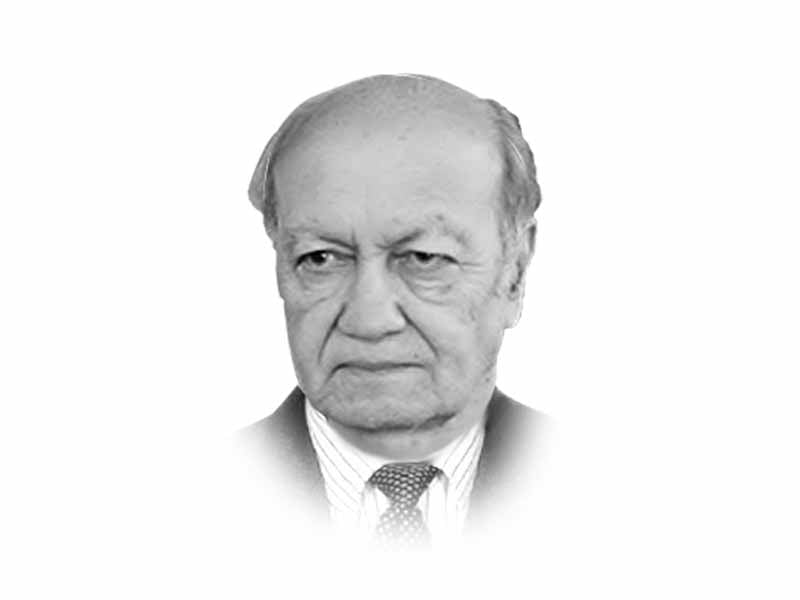
Several articles on Pakistan’s current problems have recently appeared in newspapers and magazines and the subject has been dealt with extensively on television and social media. All of these highlight that the country is set on a dangerous course burdening its masses with unbearable misery with no hope of the situation getting any better. The most significant challenge is the anemic economy with only enough foreign exchange to support one month’s import bill and that too is dwindling fast.
More worrying that the political leadership is not giving the attention to address this weakness. More time is being spent in petty squabbling with party leadership blaming the other for the present state of affairs. PTI and PML-N leaders with PPP in a supporting role remain engaged in verbal duels as though they are part of two hostile clans than a part of political parties with different political and economic views but working for a common goal. This further complicates the situation. With major political parties against Imran Khan and army leadership on their side and only temporary relief from courts, Khan despite his huge following feels desperate as he has nowhere to go. He seeks support from the US and the West, thereby setting aside his own declared principle of not involving foreign powers in internal matters. The US response understandably has been fairly guarded and would prefer to play a more discreet role. The statement by a senior US official advising all parties in Pakistan to engage and resolve their internal differences was in essence a reflection of this guarded approach.
Pakistan’s other institutions, the judiciary, bureaucracy and media are also internally divided and promoting different agendas and weakening the very foundation of the state.
This sharp decline has not occurred overnight but was in the making for years. The more disturbing aspect is that there is little realisation as to why the country finds itself in this precarious position. In essence it is the total disregard of democratic principles and culture that has brought the country to the current precipice. And even now the same attitudes and culture prevails.
Consequently, less attention is being given to the challenges being faced by the masses. More so, the multiple factors that have contributed towards the steep downturn of the national economy and need corrective measures are yet to be undertaken. Mired with these weaknesses, the credibility and reputation of the state is at stake domestically and at the international level with serious consequences for the present and future of the country.
A glaring example of this shortcoming is the lack of emphasis on tax collection by the government. As official figures indicate, only fifty percent of the eligible taxpayers, most of them in the business community, are not registered or are maintaining records for official scrutiny. With already a weak economy and tax revenue percentage of GDP at 5.6 % in Dec2022, one of the lowest in the region, the future looks bleak. The troubling feature is that with inflation running in double figures and continuously on the rise and factories and business houses shedding their workers it is the poorer segments of the society that are the worst affected. And the present government being politically fragile and disoriented is not in a position to take effective measures.
The agricultural sector that is a key driver of country’s economic growth and contributes 19.2 per cent to the GDP and provides employment to around 30 per cent of the labour force is not taxed.
Whereas, with the Russia-Ukraine war the prices of wheat in particular have risen disproportionately allowing a bigger margin of profit to the growers and those in its marketing chain, but is adversely affecting the poorer segments of the society being the main consumers. The government should seriously consider alleviating their hardship by taxing the beneficiaries and subsidising the lower income groups.
The industrial sector is facing an equally if not a greater crisis due to the devaluation of the rupee and the lack of foreign exchange for importing parts or systems from abroad to keep industrial activity in full gear. Apart from that scant attention is being given to bringing in new technologies and improving manufacturing processes with the result that our products are unable to compete in the tough international market. Clearance on ports or even on land routes through Afghanistan are suffering from delays due to state inertia and lack of oversight. This has serious implications on governance and affects the economy as image and reputation of country gets hurt.
As noted earlier, there is hardly any sector that is not affected. Drop in tourism is another casualty. The disturbed law and order system keeps tourists away from even the scenic places. Not surprising that few foreigners are seen in our big cities and at tourist resorts. Even those who visit keep a low profile. Apparently, there is a significant decline in mountain climbers from abroad which should be viewed seriously. As this category of tourists who has a deep passion for its hobby or pursuit would only stay away when it feels its safety is at risk. It is also a source of major income for the local Sherpa community that primarily relies on foreign mountaineers.
In these circumstances, turning the country around will be a herculean task and challenge the capacity of any government. The country cannot be left in this state of despair and uncertainty. There is no alternative better than having national and provincial elections soonest possible to stabilise the situation. It will provide credibility to the government and revive the system that has been held in abeyance since the ouster of the PTI government for a year. Any delay in elections will only strengthen non-democratic impulses and will be a great disservice to the country and its people.
There is need to take a deeper look at the current national predicament and the state of play between institutions and ensure adherence to the letter and spirit of the constitution.
Published in The Express Tribune, May 24th, 2023.
Like Opinion & Editorial on Facebook, follow @ETOpEd on Twitter to receive all updates on all our daily pieces.



1729080111-0/BeFunky-collage-(63)1729080111-0-165x106.webp)
1730838202-0/Trump-(1)1730838202-0-165x106.webp)








COMMENTS (2)
Comments are moderated and generally will be posted if they are on-topic and not abusive.
For more information, please see our Comments FAQ